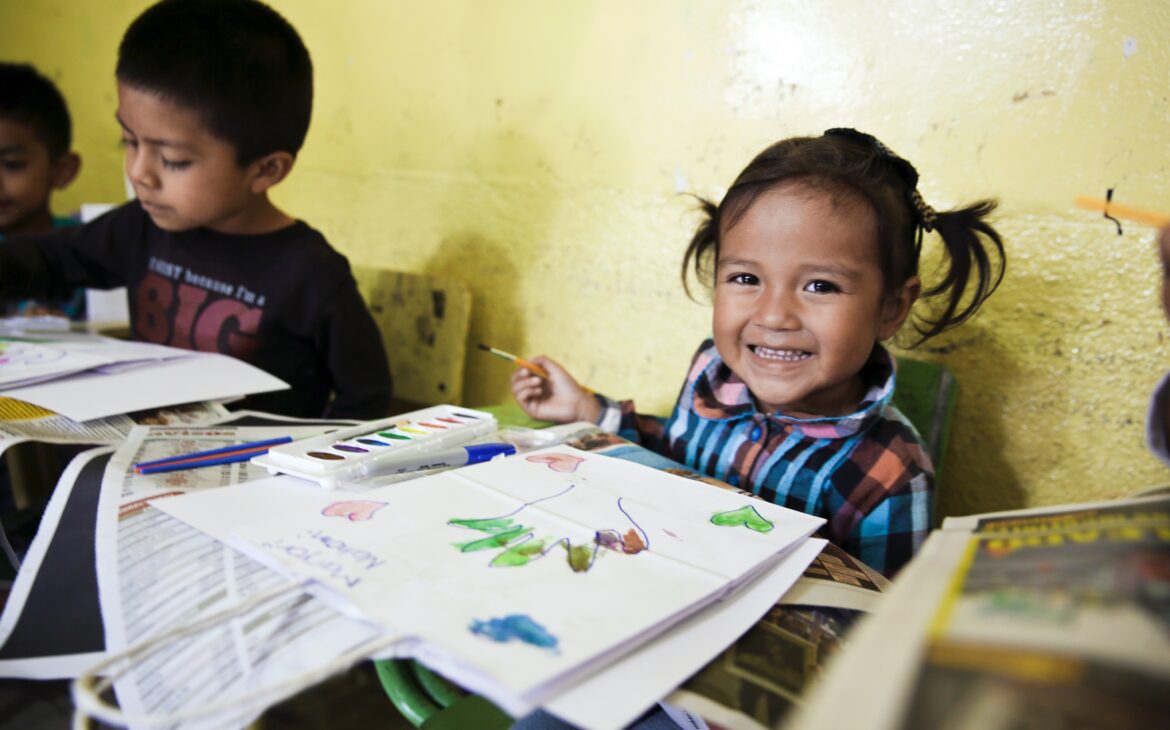
What We Can Learn From Our Negative Self-Talk
Seeing Negative Self-Talk Differently
In the wellness, spiritual, mindset, and coaching communities, there is a strong narrative of trying to eliminate our negative thoughts. It’s considered taboo to have these thoughts. The ideas of “what you focus on is what you create” and “having only positive thoughts” reinforce this narrative.
As someone who used to be part of the spiritual New Age movement, I constantly witnessed this: – people being hard on themselves because they had negative thoughts and people judging others. After all, they had negative thoughts. When talking about negative thoughts, I’m referring to the negative self-talk many of us experience. The voices inside us telling us that we’re not good enough, that we need to be perfect to succeed, and that others don’t like us.
In my experience as a trauma survivor and someone who helps Latinas and women who are cycle-breakers process trauma, I see these negative thoughts differently.
I invite you to do the same.
How Your Internal World Works
The modality I use to help my clients process trauma is called Internal Family Systems (IFS), also known as Parts Work. This powerful evidence-based modality was created by psychotherapist, Richard C. Schwartz, Ph.D. The idea behind it is just like there are many people out in the world who have different personalities, feelings, thoughts, dreams, and goals – we also have different personalities that live inside us with different feelings, thoughts, dreams, and goals. This is not the same as multiple personality disorder. This modality refers to these different personalities as “parts.”
These parts help you navigate, make sense, and feel safe in the world. You can see examples of parts operating when you say, “A part of me feels this way, but another part of me feels that way.” These are two parts speaking through you! Or when you act a certain way at home but then code-switch and act differently at work. Those are also different parts operating in you. Every thought and feeling you have are connected to a part that lives in you. This includes those negative thoughts!
Inside you, there are specific parts that are holding on to that negative self-talk. But why would they do this? The simple answer is they are trying to protect you from a past trauma getting re-activated. Some past client examples are:
One client noticed a part of her being judgmental of her all the time. She would have thoughts that constantly criticized everything she did. It turned out that this part of her was doing that because she had experienced trauma with a narcissistic parent. This trauma made the client not feel good enough, so the part started to criticize her to protect her from the parent’s judgment. At least the judgment was coming from her and not the parent anymore! This was the part’s way of having some sense of control.
Another client noticed a part that made her feel like people never liked her and she would never fit in the world. She constantly had thoughts that nobody liked her. According to what we discovered together, the client experienced abandonment in the past. That part protected the client from being re-abandoned by not letting her feel close to others.
The main thread here is that those nagging negative thoughts we have, more times than not, are parts of us that are trying to protect us from what could be a past trauma we experienced. When we can start to look at our negative self-talk from this place, we can begin to grow compassion for ourselves, and the curiosity to understand where these thoughts originate from.
The other aspect of this is that contrary to popular belief, negative thoughts from past trauma prevent positive affirmations from working. Those negative thoughts are protective mechanisms that your internal world has developed to help you cope with past trauma. You can spend years trying to change your mindset by doing positive affirmations, but you can’t force your parts to believe in them if that’s not their reality, and it doesn’t feel safe in your internal world.

The only way to change your mindset is to do deeper work to process trauma. In my experience, once you start to process trauma, your mindset will naturally shift on its own. My clients also exhibit this behavior 99% of the time. Then, affirmations become easier to take in because your internal world is more receptive to them.
So what can you do in the meantime?
Here Are Three Simple Steps to Help You Cope With Negative Self-talk (Negative Thoughts):
1. When you notice those nagging negative thoughts, understand that’s a coping mechanism your internal world has created to help you cope with life or past trauma.
It’s important to have compassion for those parts of you that are trying to protect you. Close your eyes and connect to your inner compassion. Allow it to grow and send it to this part and yourself. This part has been working hard for what has probably been many years to keep you safe, and this is the only way it knows to keep you safe – even if it doesn’t make sense to you.
2. Connect with your inner curiosity to gain clarity on what this part is trying to protect you from by creating this negative self-talk/thoughts.
If you have time, you can even have an inner dialogue with this part. If you do this, you must stay within the compassionate or curious space to make this experience safe for you and your parts. You can ask this part directly, “What are you protecting me from?” and see how it responds. Parts communicate through images, words, feelings, sensations, and colors. Just be open to how your parts communicate with you and what they want to say.
3. You suppress what you push away or try to get rid of, giving it more control over you.
Instead of trying to get rid of or push away parts of you, stay within that curious energy and send yourself compassion for everything you’ve been through. Your internal world has worked hard all these years to keep you alive, and it’s done a pretty good job, even if it doesn’t feel like it sometimes! Sometimes your parts need an upgrade or update so they don’t have to keep protecting you the way they have all these years. The way they protected you before worked then, but it may not work now that you’re an adult. Let your parts know you’re open to learning new methods and be more supportive of them. Ask them what they need from you to support you in learning this new way of being.
Developing this powerful connection with your inner world will better help you process and navigate that negative self-talk. As a result of working with a coach or practitioner trained in Parts Work, you’ll also develop more clarity about where those negative thoughts came from. You’ll begin to process those experiences. By doing so, you can live the life you’ve always wanted!
Article originally published in Epifania Magazine on July 28, 2023








